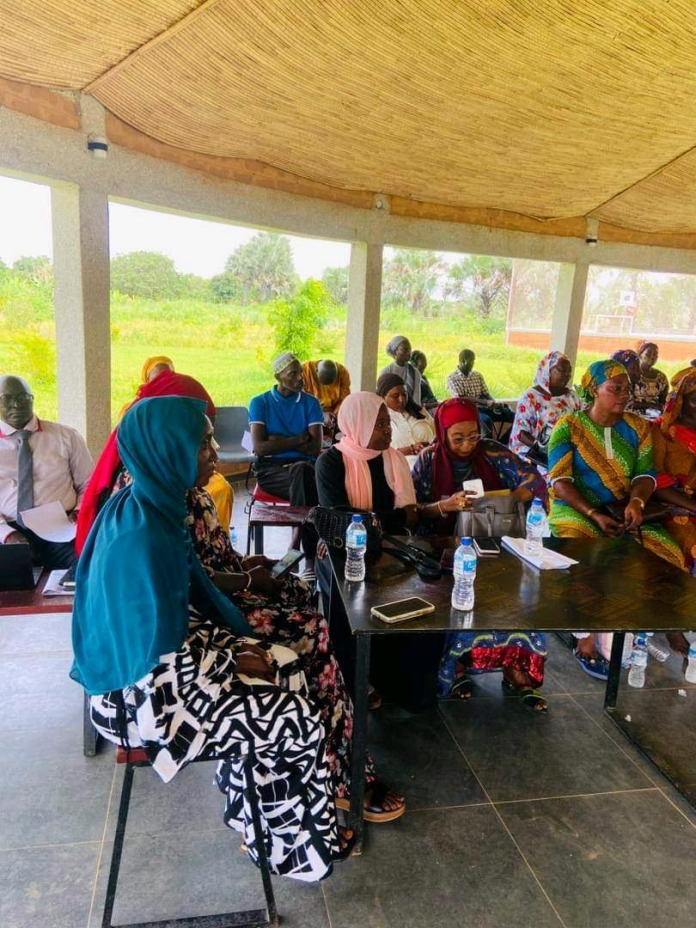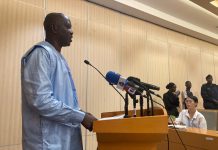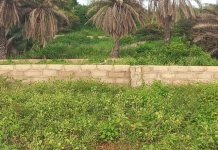By Madiba Singhateh
The Sanyang Youth for Environmental Protection and Development (SANYEPD) on Saturday, 4th October 2025, organized a one-day sensitization workshop on Empowering Women in Small-Scale Fisheries through Sustainable Fishing Practices, Governance, and Community-Led Management.
The initiative, held in collaboration with Blue Ventures, CETAG, and AFWIC, aimed to strengthen the participation of women in the management and governance of fishing resources at the Sanyang landing site.
Speaking at the event, Kebba Jabang, Project Coordinator of SANYEPD, said the workshop was designed to empower women fishers with knowledge on sustainable fishing and governance structures, emphasizing their vital role in the fisheries value chain.
“We have seen a lot of workshops where women are not involved much, yet most of the fishing activities are done by women. Men may go to the river, but the women do most of the work—they are the ones carrying the fish from the beach to the community. So, we feel like their voices must be heard,” he said.
Mr. Jabang further noted that women often face challenges and struggles in the sector but are rarely represented in decision-making processes.
“We know that in most workshops, the male voice is dominant. Women’s voices are not heard. We expect the government to hear from them,” he added.
Also speaking, Ebrima Jabang, a fisheries officer responsible for the Sanyang landing site, commended the success of the sensitization meeting, describing it as a step towards inclusive co-management of the country’s fishing resources.
“When you look at the Fisheries Act and regulations, you will understand that the fisheries department alone cannot do it all. We have to come together, and that togetherness must include everyone. As long as you are involved in fisheries processing, you are part of the system,” he explained.
He stressed the importance of involving women in the co-management of fisheries, acknowledging cultural and traditional barriers that often limit their participation in decision-making.
“In our culture, women are often seen as weak in decision-making. But we brought them together because they know their roles and responsibilities in the fisheries sector. Hearing their voices gives them more power and recognition in the sector,” Mr. Jabang emphasized.
The sensitization program concluded with renewed calls for greater inclusion of women in fisheries governance and resource management, recognizing their indispensable contribution to the sustainability of the fishing industry in Sanyang and beyond.




















